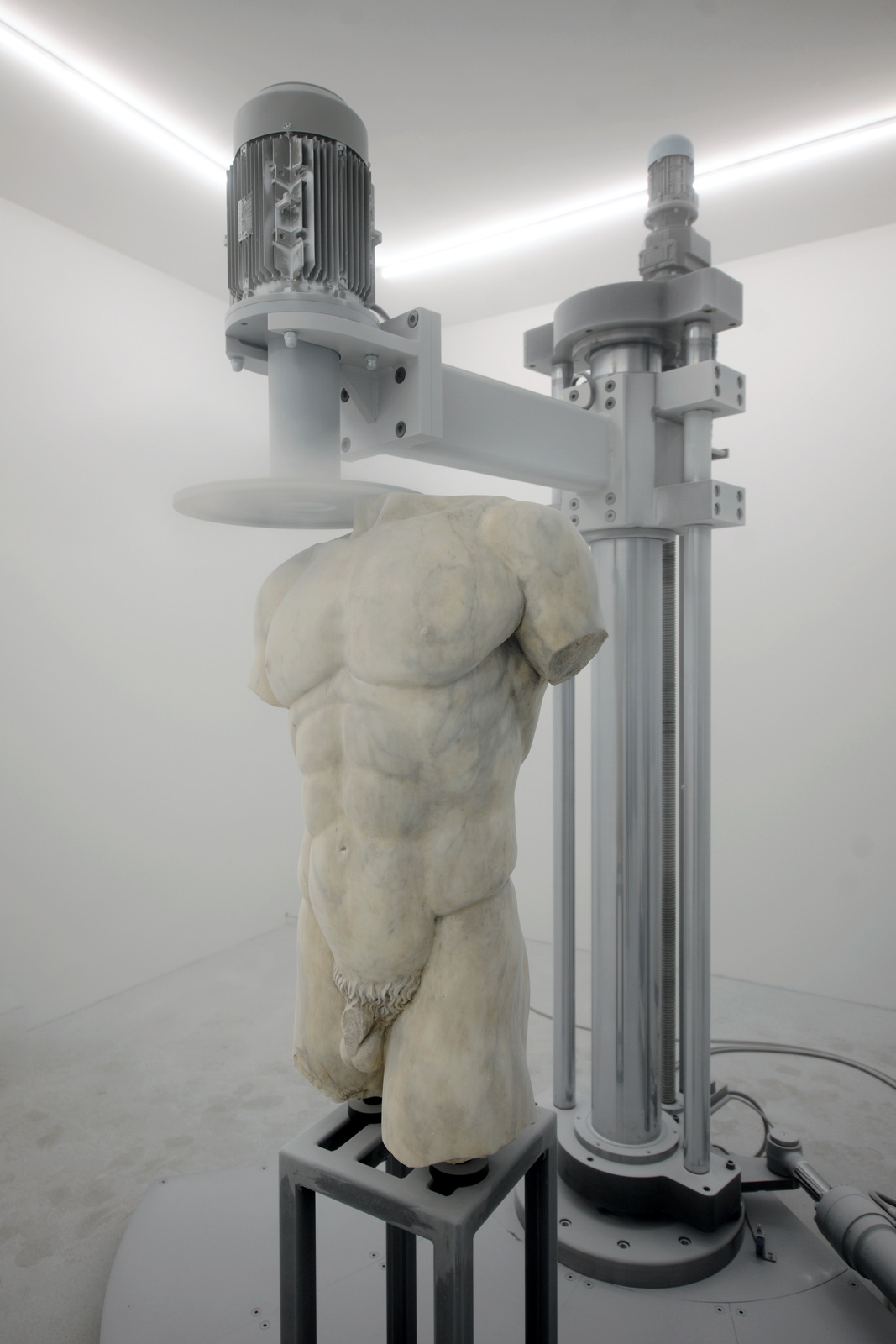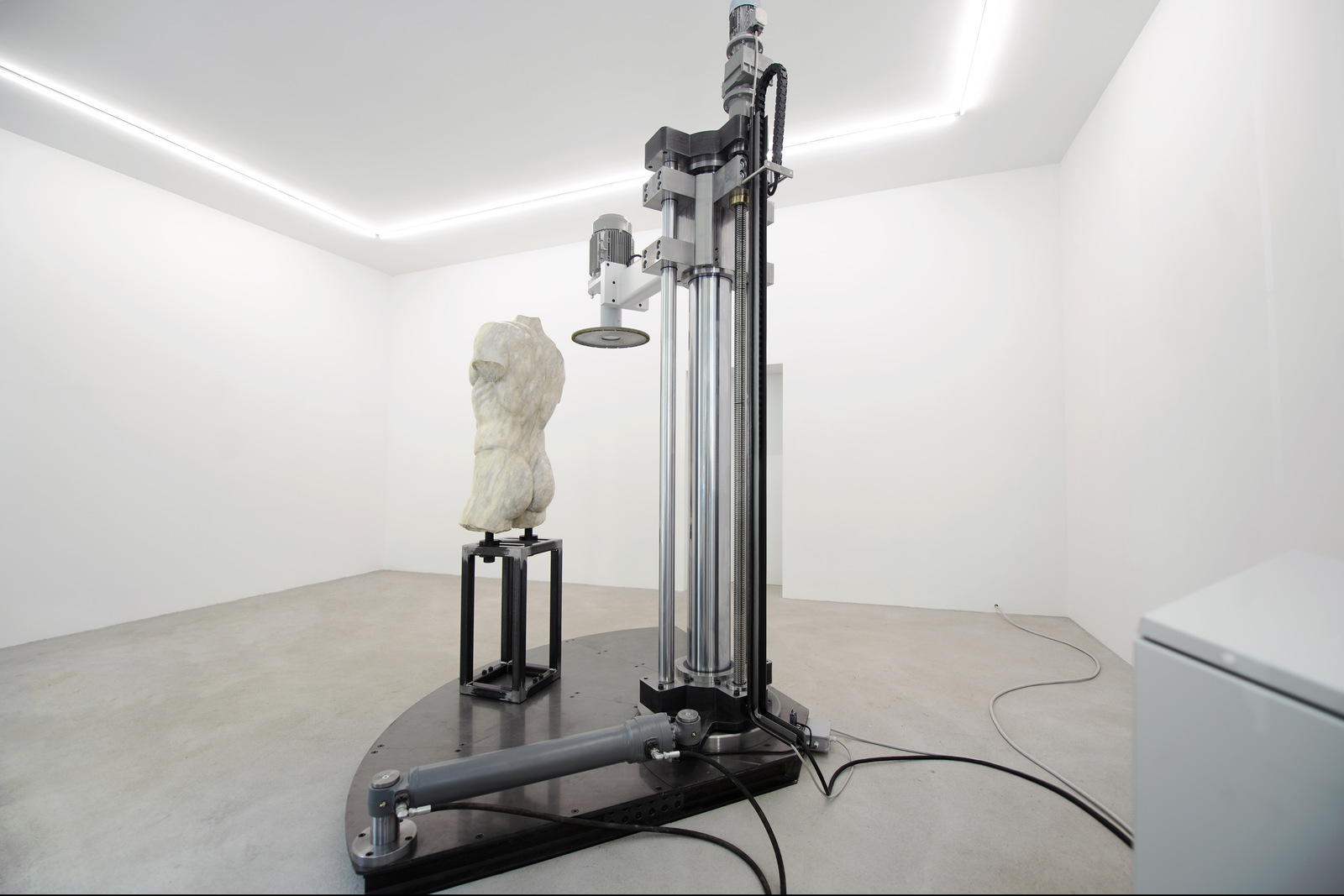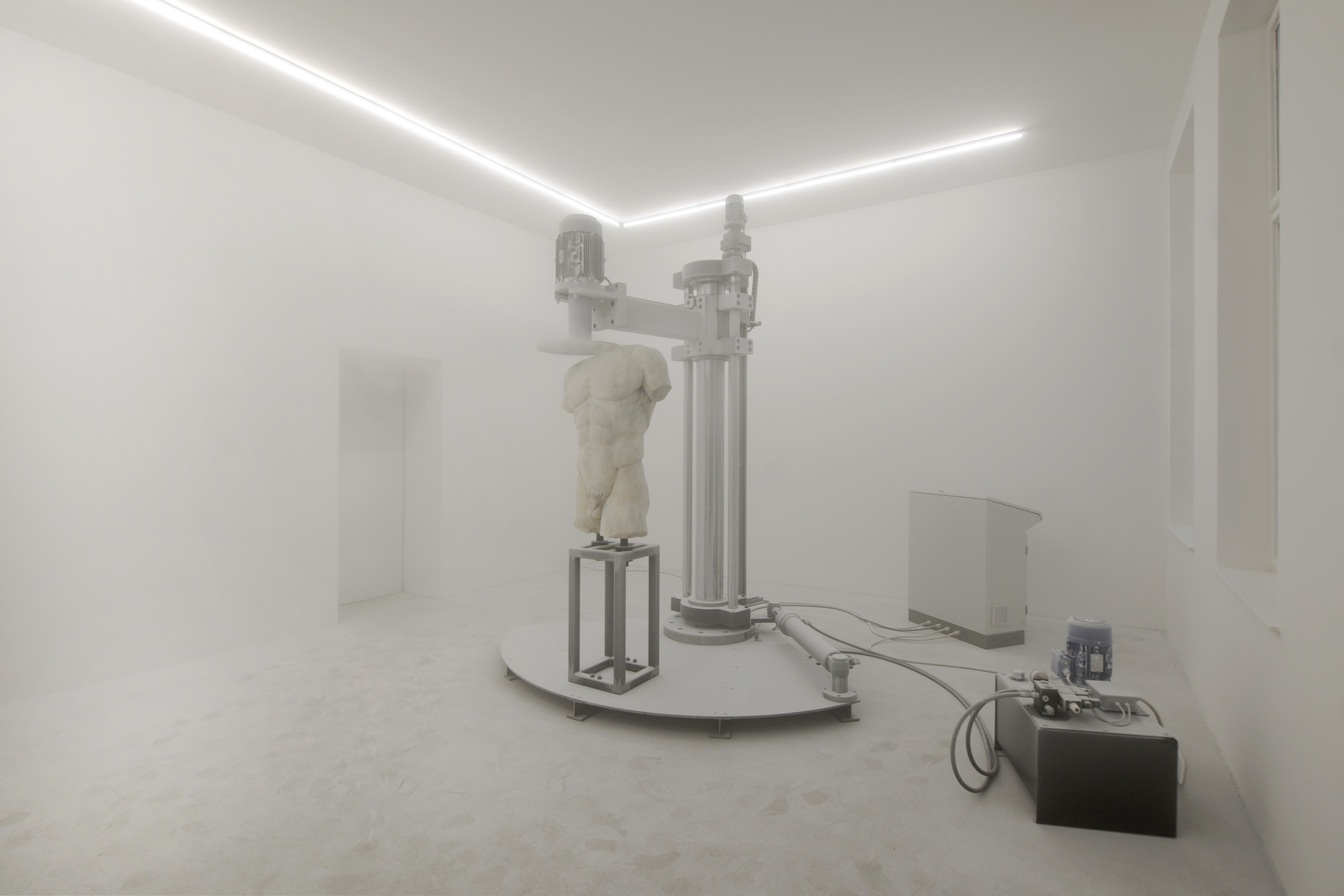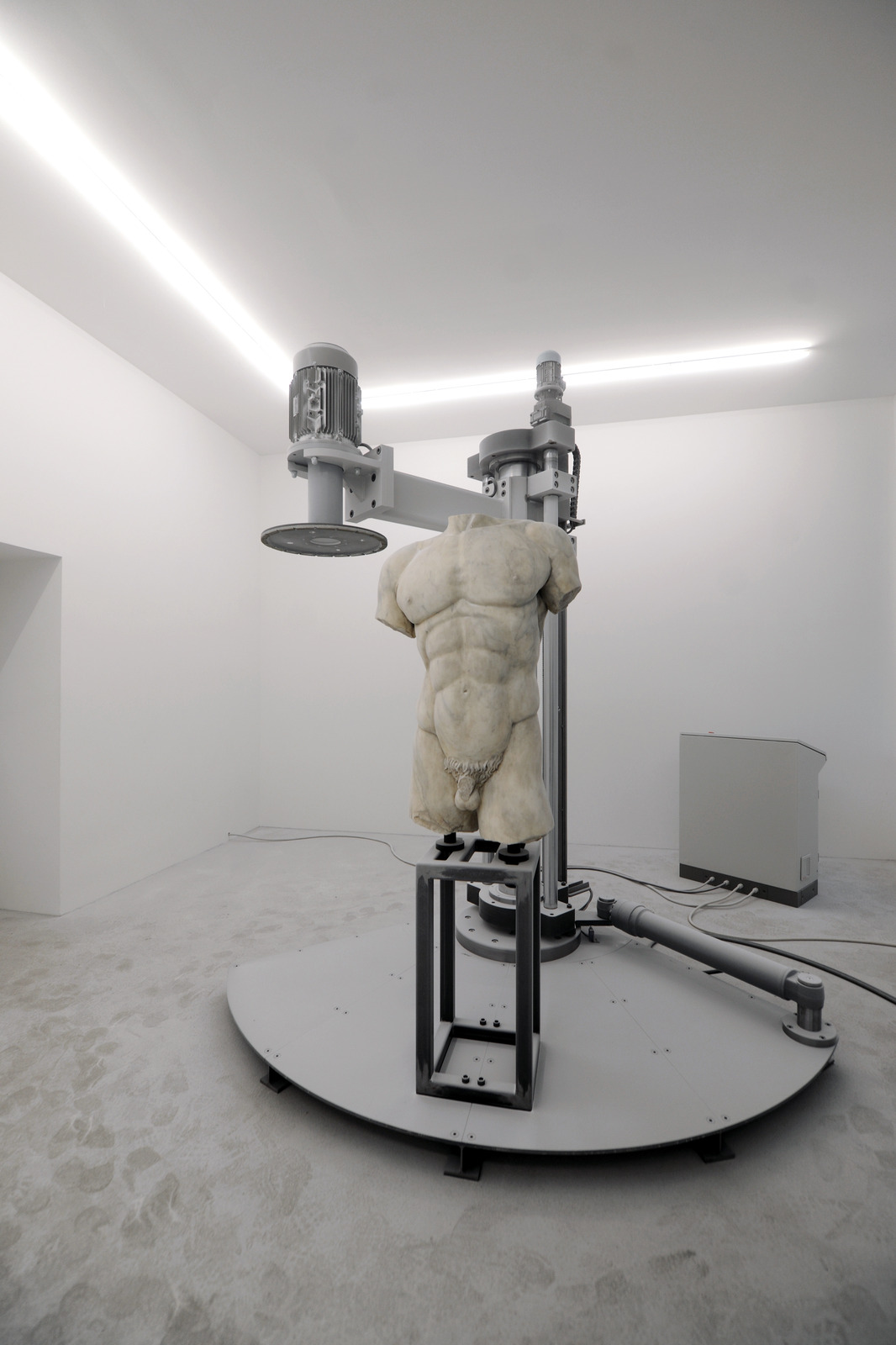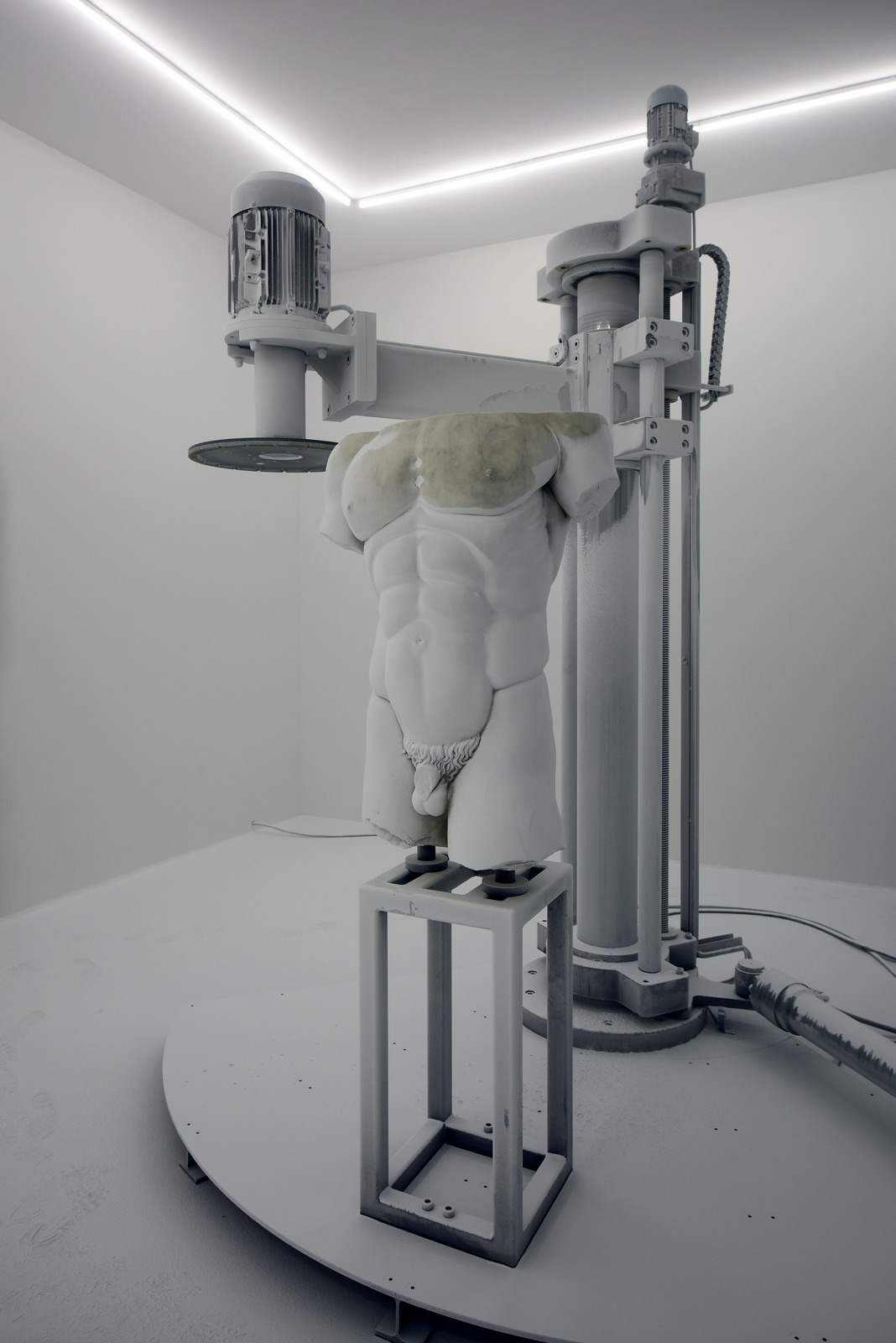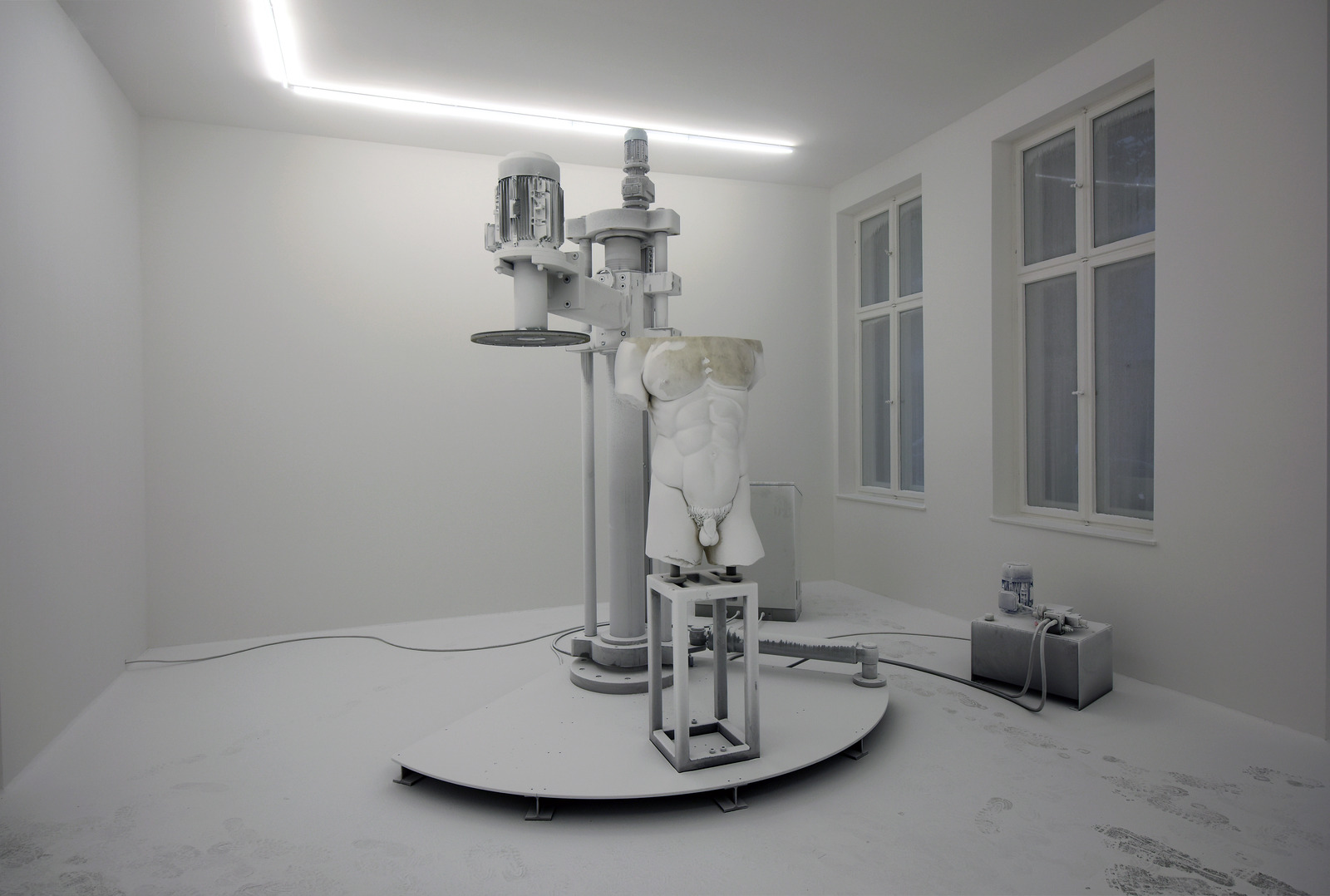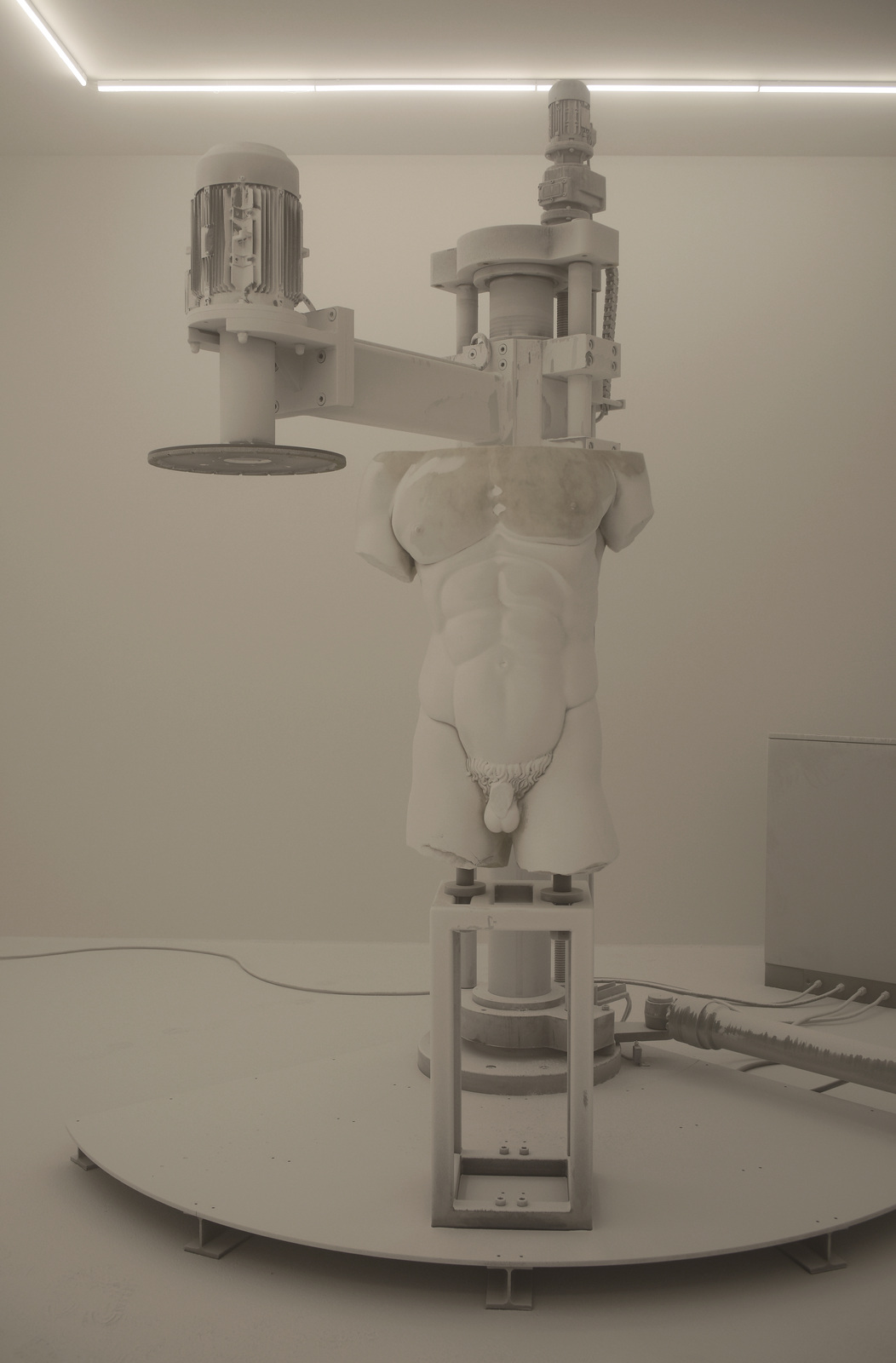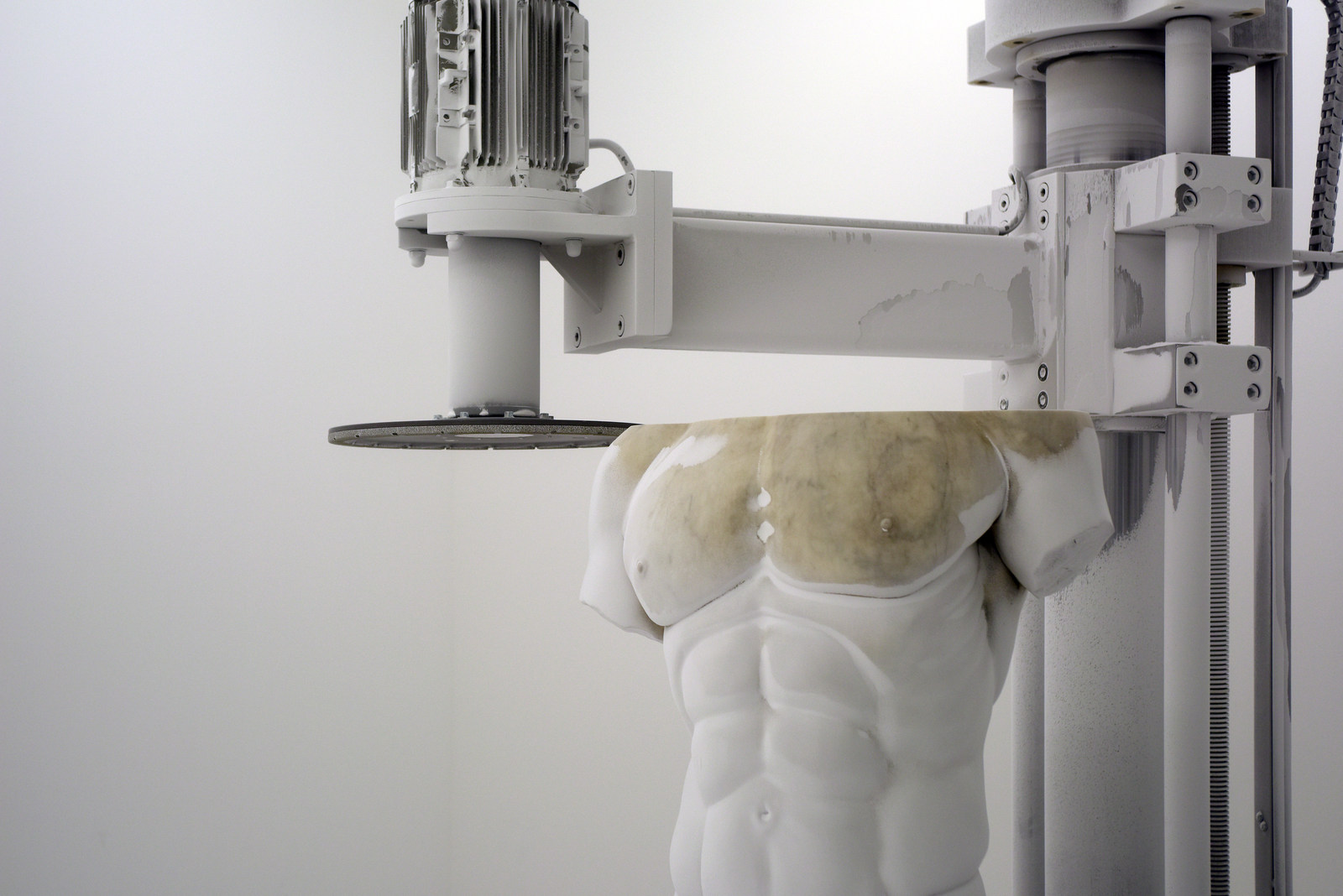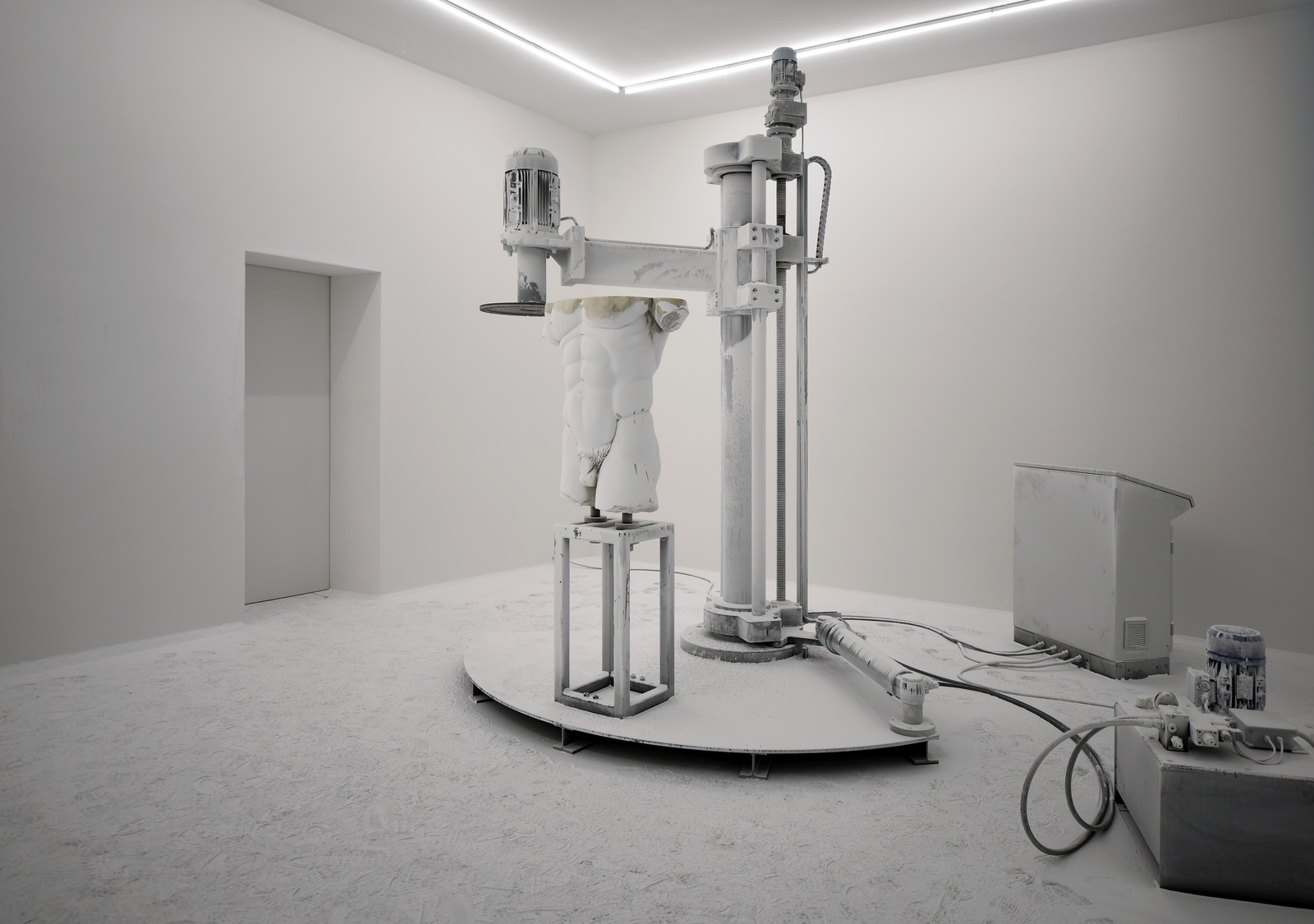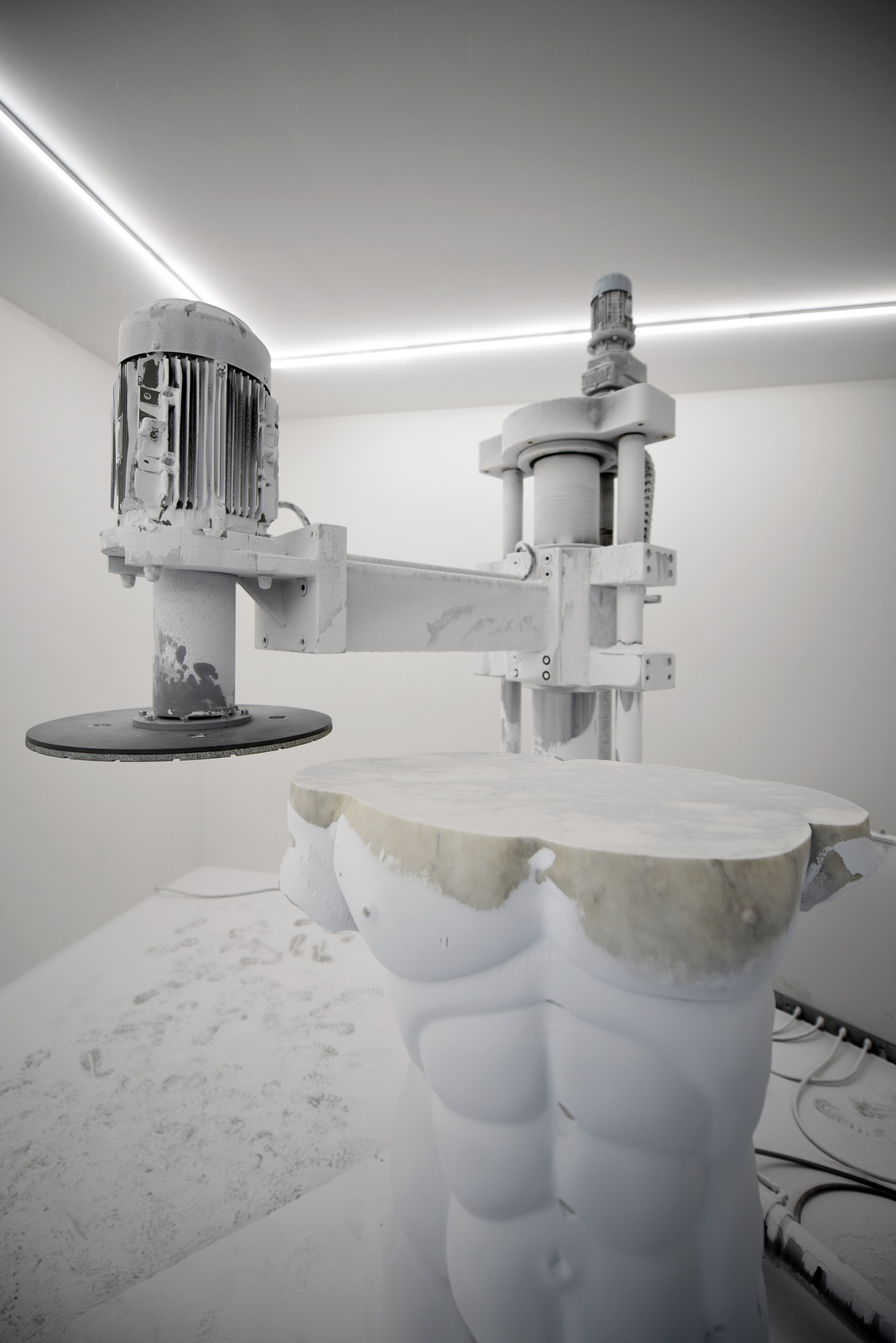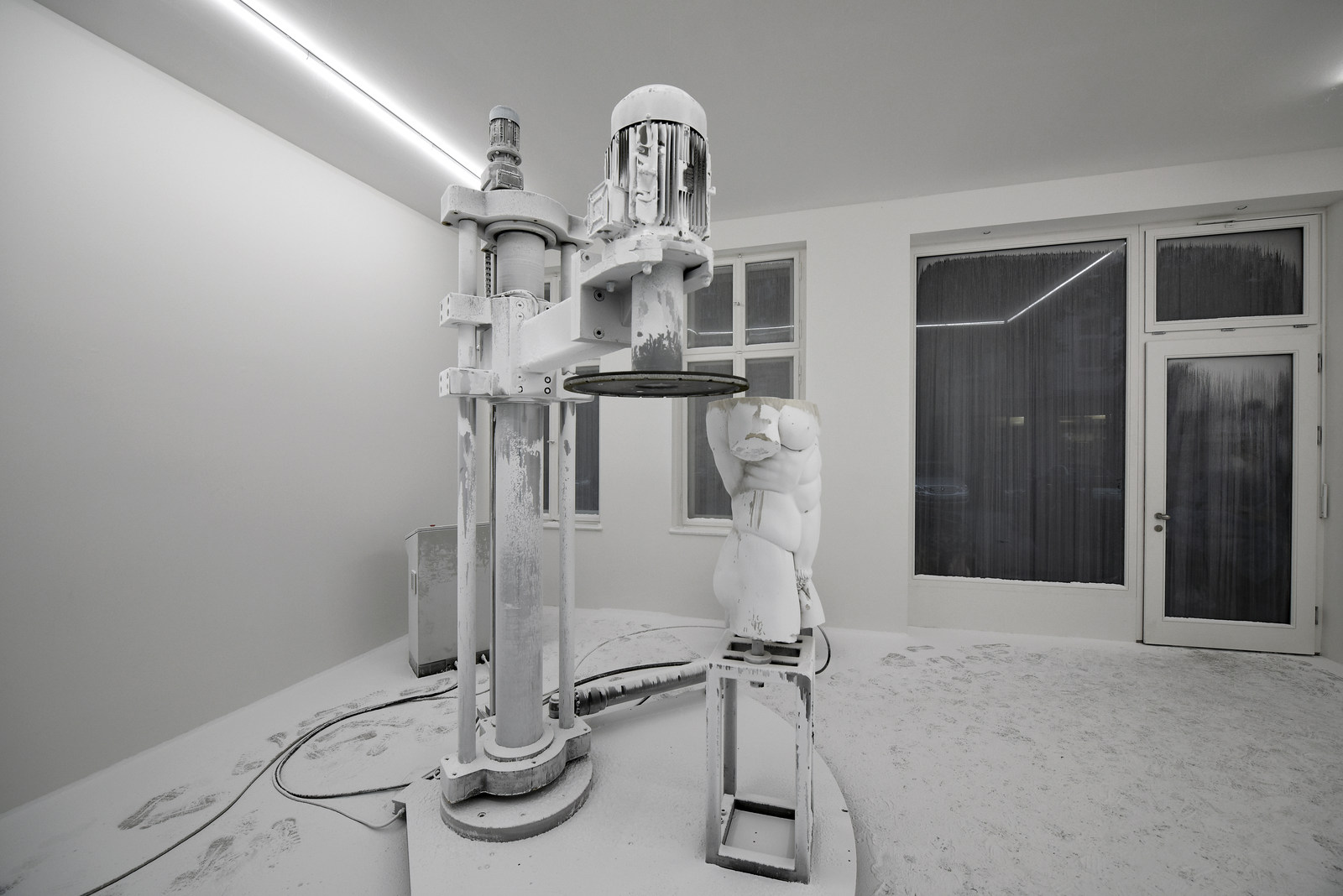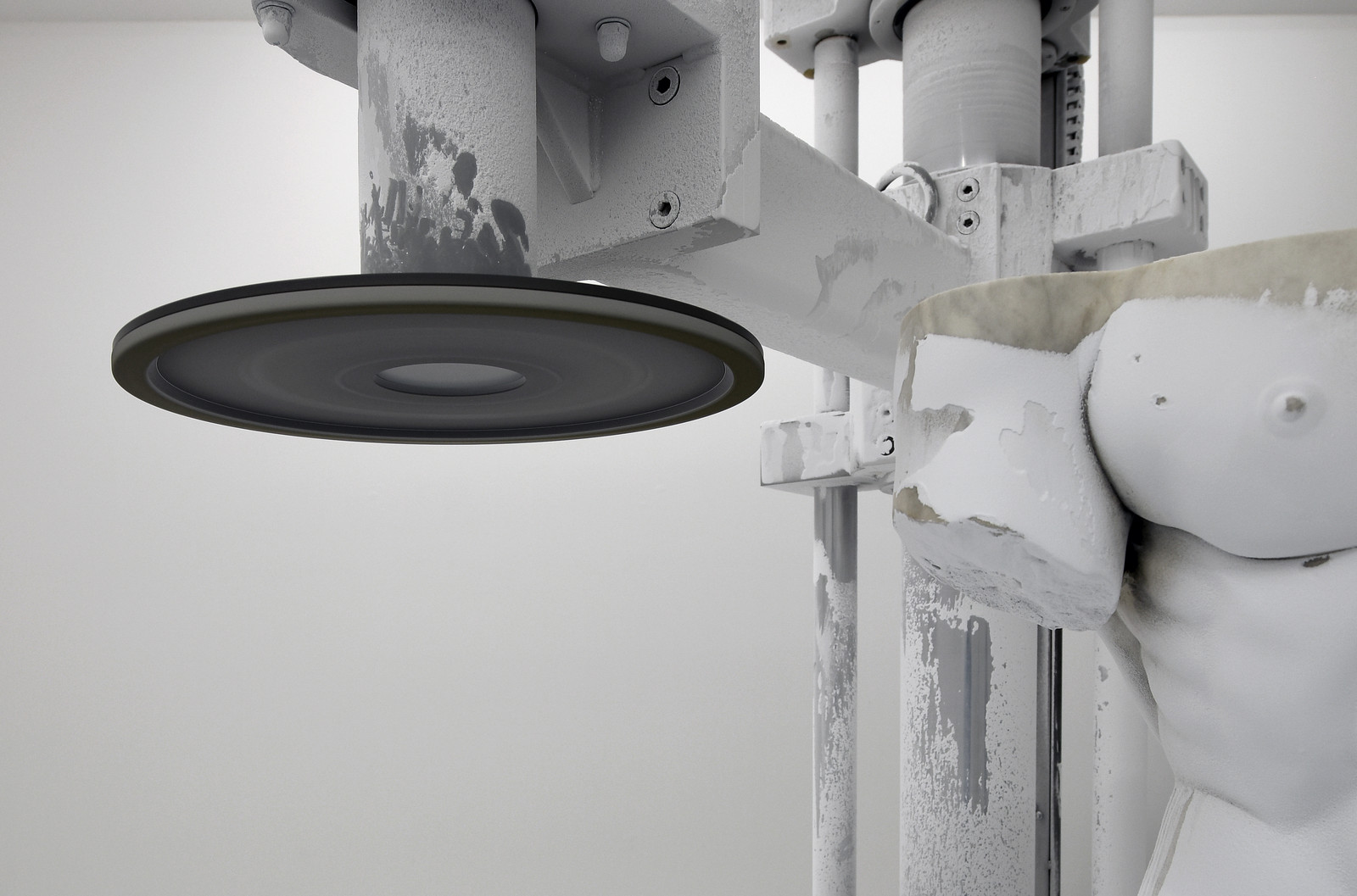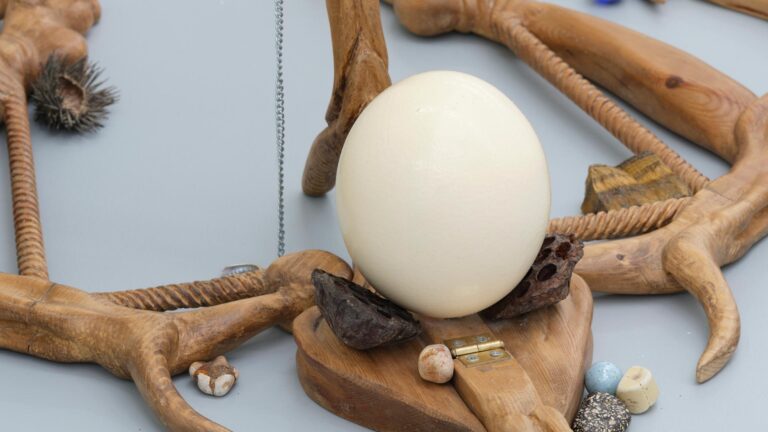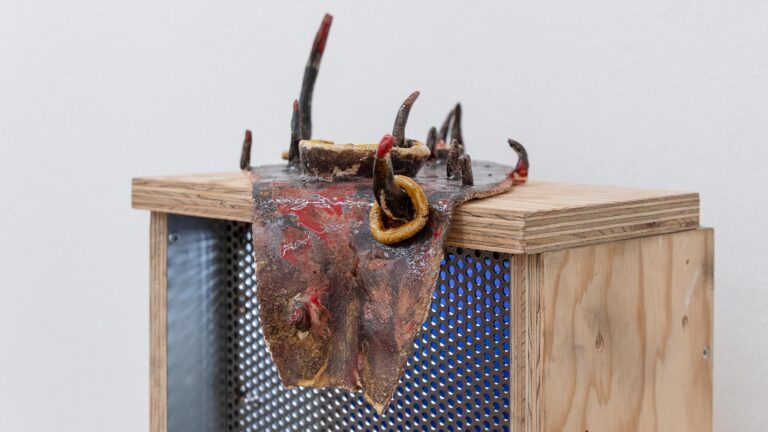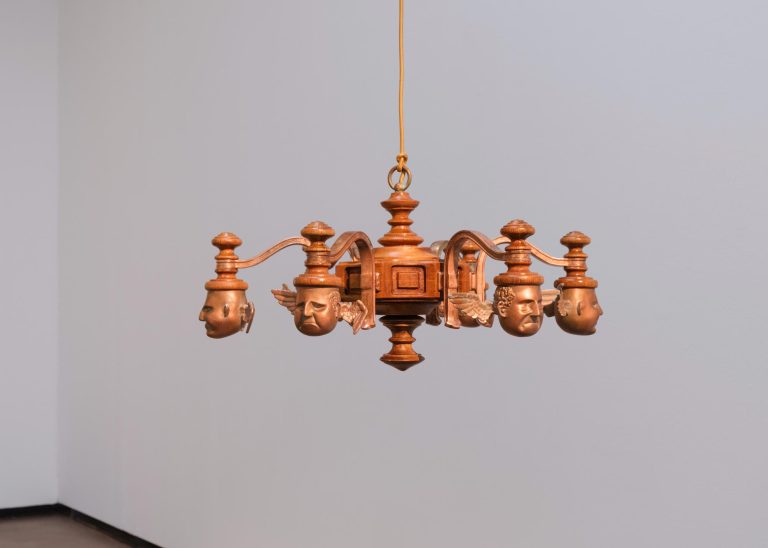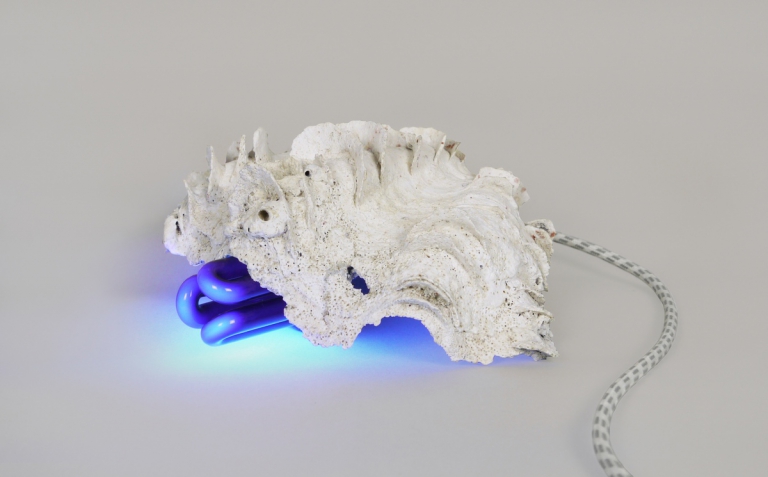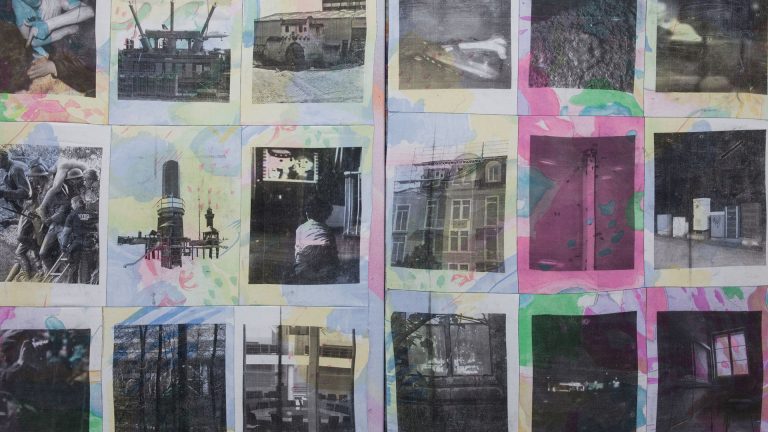Artist: Arcangelo Sassolino
Exhibition title: Damnatio Memoriae
Venue: Rolando Anselmi, Berlin, Germany
Date: September 17 – December 15, 2016
Photography: all images copyright and courtesy of the artist and Rolando Anselmi, Berlin
From the Latin, damnatio memoriae describes an act of erasure from the historical record reserved for those who have brought dishonor to the Roman State. Employed as the most stringent punishment for treason, damnatio memoriae physically razes all traces of an individual from society, typically through the destruction a statue’s physiognomy or the abrasion of inscribed monuments. Throughout the past two decades, Sassolino has developed a body of work that examines the relationship between industrial machines and humanist impulses where viewers are meant to question how an sculpture’s kinetic function aesthetically and conceptually allegorizes human experiences and cultural conditions.
Standing over 3.3 meters tall and composed of milled stainless steel, damnatio memoriae’s diamond sander rotates at a rate of 2900 rpm methodically transforming a marble statue’s idealized physiology into a cloud of nebulous dust. Over the course of the exhibition, the sculpture’s physical permanence is slowly dematerialized, reducing the object’s existence to memory. Fabricated based on a historical original, the torso’s status as a copy further complicates the truth-value of extant historical narratives. If Alois Riegl’s seminal text “The Modern Cult of Monuments: Its Character and Origin” (1903) posits a monument’s signal purpose as maintaining human culture “alive and present in the human consciousness,” Sassolino’s damnatio memoriae questions the value of history in the contemporary imaginary. Moreover, Sassolino’s signature visual vocabulary makes Minimalism’s embedded anthropomorphic qualities explicit, pushing industrial material the point of failure and mining the nuanced strata of contemporary relationships and collective histories. Damnatio memoriae furthers Sassolino interest in visceral encounters that reconsider collective memory and call into question the criteria that demonstrate our humanity.
Arcangelo Sassolino (b. 1967) lives and works in Vicenza, Italy. Recent exhibitions include Mechanisms of Power at the Frankfurter Kunstverein, curated by Franziska Nori and Not Human at the Contemporary Art Museum St. Louis, the artist’s first solo exhibition in America, curated by Jeffrey Uslip. Selected one-person exhibitions include Palais de Tokyo, Paris (2008); Critical Mass, Feinkost, Berlin, Germany (2008); Galleria Continua, San Gimignano, Italy (2010); MACRO Museum, Rome, Italy (2011); the environmental projects presented in Z33 Center for Contemporary Art in Hasselt, Belgium (2010); and in the context of Art and The City in Zurich (2012). Sassolino’s work has been featured in a number of group exhibitions, including shows at 104, Paris, France (2015); Rolando Anselmi, Berlin (2014); Bortolami Gallery, New York (2013); Centro di Cultura Contemporanea Strozzina, Firenze, Italy (2012, 2010); Swiss Institute, New York (2011); Tinguely Museum, Basel, Switzerland (2010); Peggy Guggenheim Collection, Venice, Italy (2009); Micamoca, Berlin, Germany (2009); Dunkers Kulturhus, Helsingborg, Sweden (2008); FRAC, Rheims, France (2007); ZKM, Karlsruhe, Germany (2004); and Fondazione Bevilacqua la Masa, Venice (2002).

